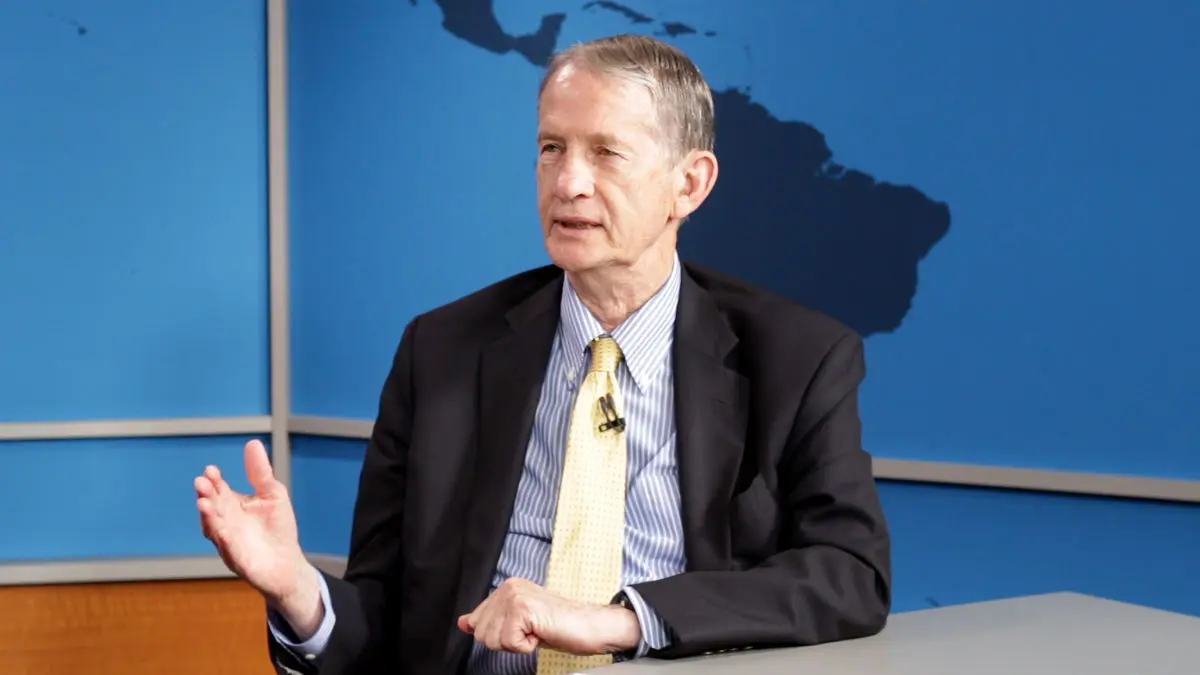The new sanctions will probably reduce the Iranian economy by as much as 5 percent; Gary Clyde Hufbauer

China and Russia are great powers. If they decide it is in their interest to continue economic ties with Iran, they will do so, and absorb any cost resulting from US sanctions.
Gary Clyde Hufbauer is Reginald Jones Senior Fellow at the Peterson Institute for International Economics. Previously he was the Marcus Wallenberg Professor of International Financial Diplomacy at Georgetown University, and served in the US Treasury Department from 1974 to1980. He holds an A.B from Harvard College, a Ph.D. in economics from King’s College at Cambridge University, and a J.D. from Georgetown University Law Center. His co-authored publications include Economic Sanctions Reconsidered, third edition (2007), US Taxation of Foreign Income (2007), US-China Trade Disputes: Rising Tide, Rising Stakes (2006), and NAFTA Revisited: Achievements and Challenges (2005).
ILNA: Given the U.S. withdrawal from the nuclear deal and the reversal of economic sanctions, could it be possible to continue Iran's banking relations with other banks in the world and to cooperate with Europe?
If the US carries out Secretary Pompeo’s threat to impose the harshest sanctions in history, banks all over the world will have the choice between doing business in the US – using their own branches on US soil, US correspondent banks, and Fedwire to transfer funds – and doing business in Iran. A few banks will no doubt decide to do business with Iran and not the US, but these will be smaller banks. The US will try to identify those smaller banks and might threaten any other bank that does business with them. So Iran will have considerably more difficulty in carrying out its financial transactions.
ILNA: European governments are planning to shape a plan to circumvent US fines and trade with Iran on the basis of the Euro; will this be possible in practice?
This is the big question. If European governments devise such a plan and put it into place, that will trigger a major break with the US government, so long as Trump, Bolton and Pompeo stick with their announced agenda.
ILNA: How do you assess the impact of these sanctions on the global oil market?
I doubt that India or China will reduce their purchases of oil from Iran; however, I think that Europe, Japan and Korea will do so. On balance, I do not foresee a significant disruption of the global oil market, but some countries will pay less for oil and some will pay more.
ILNA: Can China and Russia continue to maintain economic ties with Iran, given the sanctions?
China and Russia are great powers. If they decide it is in their interest to continue economic ties with Iran, they will do so, and absorb any cost resulting from US sanctions.
ILNA: How can the effects of U.S. sanctions on Iran be reduced?
There are two possibilities: (1) accede to US demands; (2) rely very heavily on either Russia or China for all economic transactions, and accept whatever foreign policy guidance comes from Moscow or Beijing.
ILNA: Do you think Europe is prepared to stand up to U.S. to maintain its business relationship with Iran? What is your assessment of Trump's decision to withdraw from JCPOA?
Europe is very angry with the Trump administration, but I think European governments will oblige the United States because of the very strong US-EU economic interdependence. However, I question whether the US will get a better deal from Iran by withdrawing from the JCPOA.
ILNA: According to the United States’ plan for the formation of a coalition against Iran and tightening the economic blockade ring, is there a need for Iran to remain in JCPOA?
If Iran wants to retain any sympathy from Europe, it will remain in the JCPOA. Only if Iran decides to rely entirely on Russia or China will it leave the JCPOA.
ILNA: What is your assessment of basic impacts of new sanctions on Iran economy?
Iran’s economic problems are largely self-inflicted. You know the details better than I. However, the new sanctions will probably reduce the Iranian economy by as much as 5%.
